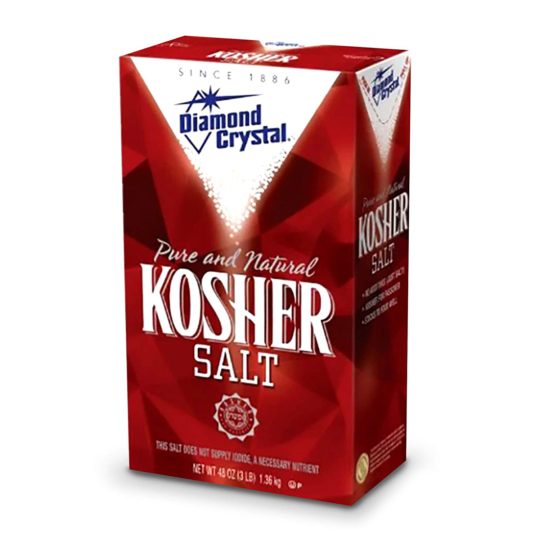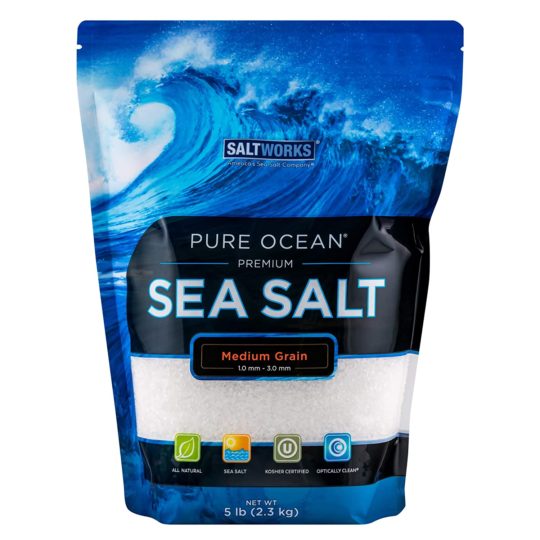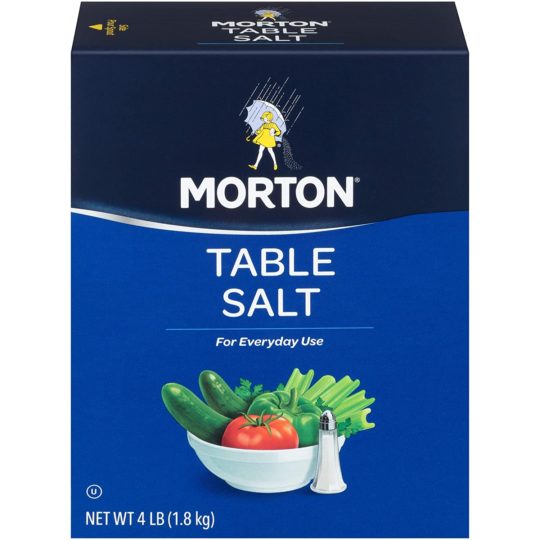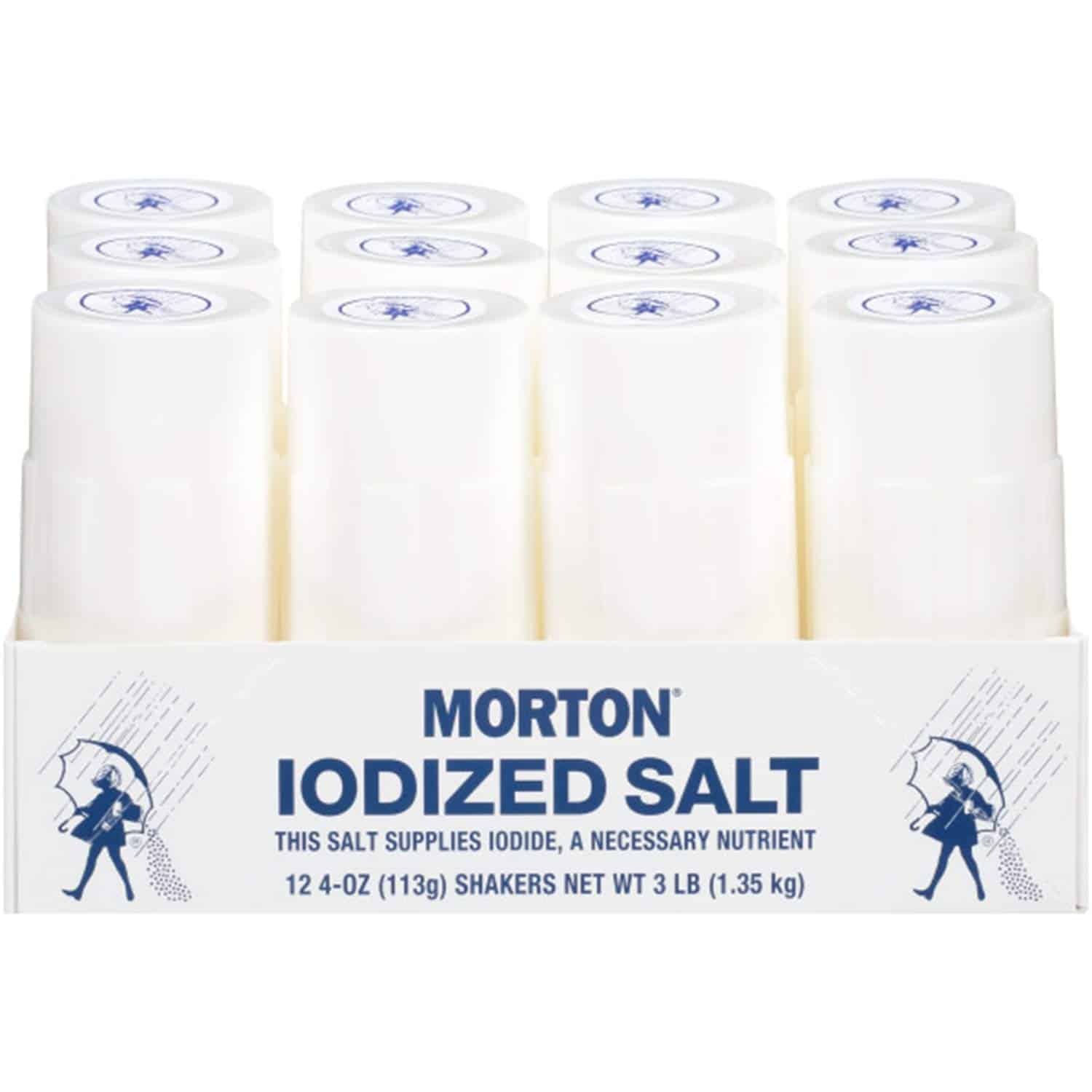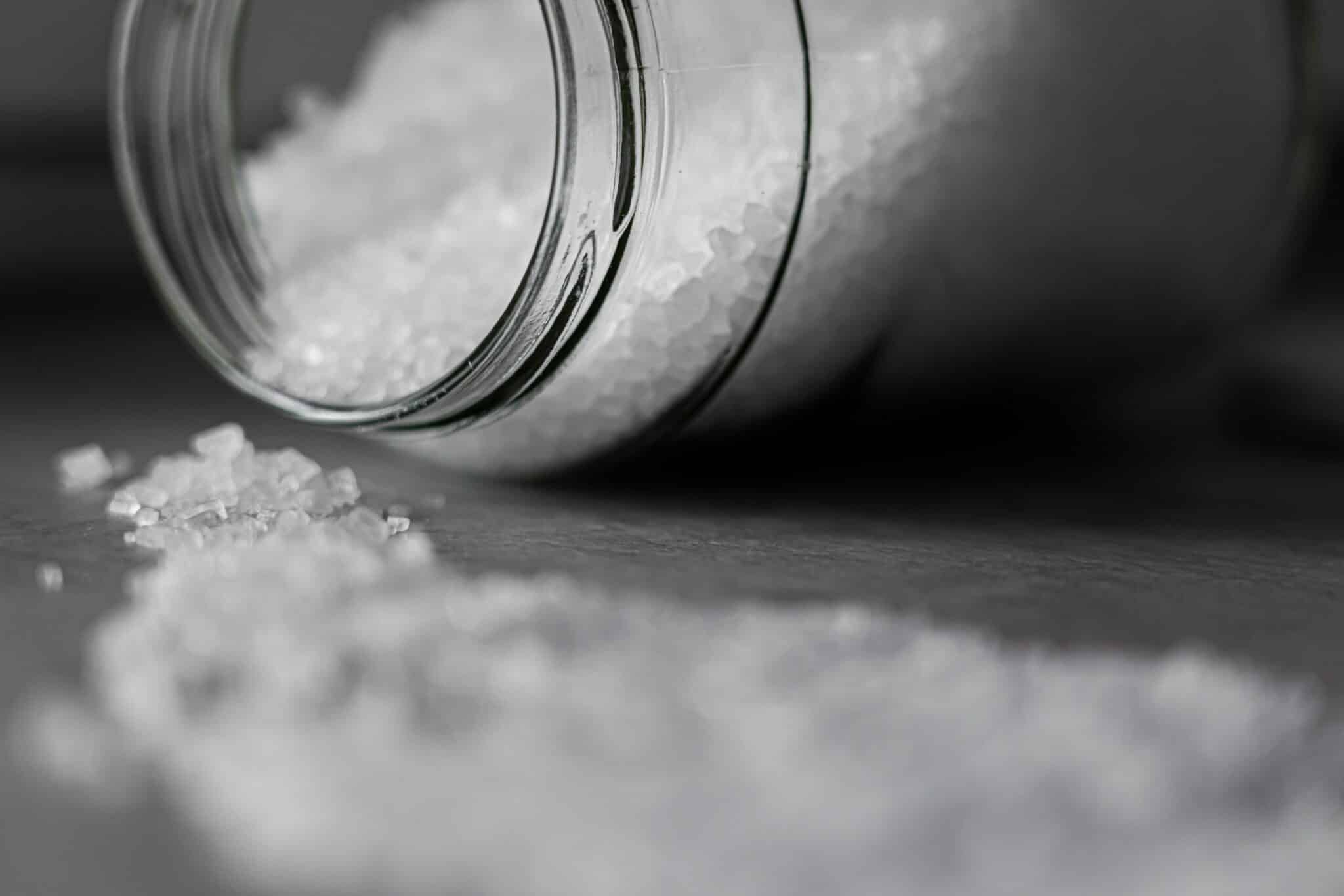Pickling salt is also known as Nacl, rock salt, canning salt, salt, and preserving salt, but unlike other forms of salt, it is the purest salt. It has been used for over 8,000 years in food flavoring, canning, trade, religious rituals, and preservation. It wasn’t until the last 100 years that people started using it to preserve other foods apart from meat. Pickling salt is pure sodium chloride. It is free from anti-caking agents and other additives found in other salts.
Pickling salt is used for other purposes; 6% of all salt is used for consumption, 12% is used in the water conditioning process, 68% in manufacturing and other industrial processes, 8% for dieting highways, and 6% in agriculture. In low acid food such as vegetables, pickling salt is used to add flavor and increase the vegetables’ quality and texture. In fermented foods pickling salt provides characteristics of flavor, safety, and texture. The pickling salt also favors the growth of desirable bacteria while inhibiting the growth of others. So, the amount of salt should not be altered or compromised as this can cause spoilage.
Pickling salt has a salty taste and is not bitter. It provides a subtle flavor complexity to the pickle recipe. You have to be careful while using pickling salt because it dissolves easily and can add a saltier flavor to your recipe. Start with a small quantity and taste before adding more. This is to ensure you don’t over salt. Pickle salt sharpens, concentrates, and balances the flavor of finished pickles.
The fine granules texture of pickle salt makes it dissolve in brine, stick to a meal, be packed more into a container, and measured more accurately. The salt removes excess water from the pickle and gives it a firm, crisp and crunchy texture.
Pickling salt nutrition facts:
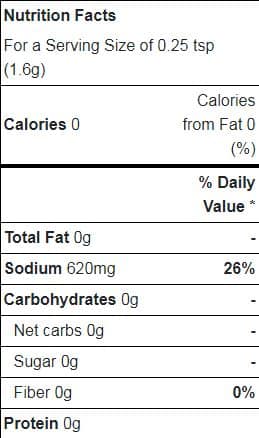
Use in different recipes
Pickling salt acts as a preservative for pickling and canning. The pickled food can safely be stored and eaten because it increases the salinity, killing bacteria that can make you sick. It is the best because of its purity and texture, making it dissolve easily and evenly distributed throughout a brine. It adds texture and flavor to the recipes, some of which include;
- Pickled eggs
- Bread and butter pickles
- Tomatoes pickle
- Dilly green beans
Substitutes for pickling salt
Although pickling salt is the best salt to use for the pickle brine, other substitutes can replace it when you can’t find it or you run out of it in the Pantry. But you can’t just substitute any salt or salt-like product for pickling salt because of the danger of botulism that comes with pickling.
Here are some salt substitutes that are safe to use;
Kosher salt
Kosher salt is your best substitute for pickling salt because it contains no additives, iodine, or anti-smoking agents. It has a mild, bright taste, and because it is a grain of pure salt, it does not discolor pickled food nor give an undesirable flavor. The major difference between kosher salt and pickling salt is their texture. Kosher salt has a larger grain size, which makes measurement inaccurate most times. When substituting with kosher salt, it is relevant to know that weight per volume can differ, so 1½ cups of kosher salt equal about 1 cup of pickling salt, one teaspoon of pickling salt are equal to 1¼ teaspoon of kosher salt, and when measuring by weight; 7¾ ounces (220 grams) of kosher salt is equal to 1 Cup of pickling salt. Also, kosher salt takes longer to dissolve, and you’ll need to add more of it in a recipe than pickling salt.
Read More: Salt and Pepper Shrimp Recipe
Sea salt
This is a decent substitute for pickling salt because it contains no additives. There are two types of sea salt available; coarse sea salt and fine sea salt. The coarse sea salt gives a nicer flavor to pickles, has a higher moisture retaining factor, and it may take some time to dissolve if it’s not grounded fully. Sea salt may also have problems with measurement accuracy, so it is important to know how much to use in its different forms; 1 teaspoon of fine sea salt is equal to 1teaspoon of pickling salt, ½ cups + 1 teaspoons of fine sea salt are equal to ½ cups of pickling salt, 2 cups + 1 tablespoon of fine sea salt is equal to 1 cup pickling salt; 1 teaspoon coarse sea salt is equal to 1 teaspoon pickling salt, ¼ cup of coarse sea salt is equal to ¼ cup. If pickling salt, 1cup + ½teaspoons of coarse sea salt is equal to 1 cup of pickling salt. However, note that some sea salt will have more of some minerals than others, which can negatively offer the flavor of the pickled food.
Non-iodized table salt
Table salt that doesn’t contain iodine is a good substitute for pickling salt because iodine affects pickles’ color and flavor. Non-iodized table salt contains anti-caking materials, which will make your brine cloudy, so a pinch should add it. Table salt is processed down into smaller granules, making it easier to dissolve in the brine just like pickling salt, and it has a stronger salty flavor. The salt doesn’t pose any threat to accurate measurement because of its fine grain texture. The small grains are easy to measure, it has a 1:1 equivalent of pickling salt; 1 teaspoon of table salt is equal to 1 teaspoon of pickling salt, one tablespoon of table salt is equal to 1 tablespoon pickling salt.
Iodized table salt
Iodized table salt is the least option to use for substituting for pickling salt because it contains iodine, which negatively affects the pickle’s taste and flavor. It is safe and can be used to pickle if you are out of pickling salt or have none. Iodized salt substituting for pickling salt is one of the most controversial substitutes because it darkens pickles’ color. Its fine grain texture makes the brine cloudy because of the anti-caking agent. Table salt has a stronger salty flavor than another salt, and it is relevant for you to know its measurement when substituting with pickling salt; 1 teaspoon pickling salt to 1 teaspoon table salt, ¼ cup pickling salt to ¼ cup table salt, one tablespoon pickling salt to 1 tablespoon table salt.
Substitute for pickling salt in pickled eggs
Pickled eggs easily make pickles recipe. Just pour the flavourful brine over the hard-boiled eggs and refrigerate. Two tablespoons of pickling salt required can be substituted with two tablespoons of fine sea salt to make the brine.
Substitute for pickling salt in bread and butter pickles
A perfect substitute for pickling salt in making bread and butter pickles is kosher salt because it has no additives and anti-caking agents. The ¼ cup pickling salt is substituted with ¼ cup + 1 tablespoon kosher salt.
Substitute for pickling salt in tomatoes pickles
When tomatoes are in season, it’s easy to get excess that needs to be pickled. The two tablespoon pickling salt needed for pickling can be substituted with two tablespoons of non-iodized salt. The non-iodized salt does not cause botulism, so there is a good substitute in this recipe.
Substitute for pickling salt in dilly green beans
Dilly green beans are the perfect spice for a delicious sandwich and any meal. The pickling salt used to make it can be substituted with iodized table salt. The two tablespoon pickling salt can be substituted with two tablespoons of iodized salt.
Frequently asked questions (FAQs)
What is pickling salt?
Pickling salt is a pure salt that is ideal for canning and preserving other foods. It Is made of pure sodium chloride, contains no iodine or anti-caking agents, and a fine grain salt. It is also referred to as canning salt, and it can dissolve easily.
Is salt necessary for pickling?
The USDA complete guide (2015) says salt is not required for fresh-pack (vinegar) pickle recipes, but that it is required for safety with fermented pickles.
Is kosher salt the same as pickling salt?
Pickling salt and kosher salt are not the same things, but kosher salt is a good substitute for pickling salt as long as it contains no anti-caking agents. There also have different textures.
Conclusion
In conclusion, pickling salt is the most preferred salt for making pickles because it is pure, has no anti-caking agents or additives. Although most recipes call for pickling salt, other options are available to substitute for pickling salts, such as kosher salt, sea salt, and table salt (iodized or non-iodized).
All salts taste the same when dissolved in water, but fine salts may be saltier than coarse salt. This is because of the difference in texture. When substituting, it is of the utmost importance to consider the measurement conversion of other salts with pickling salt.
